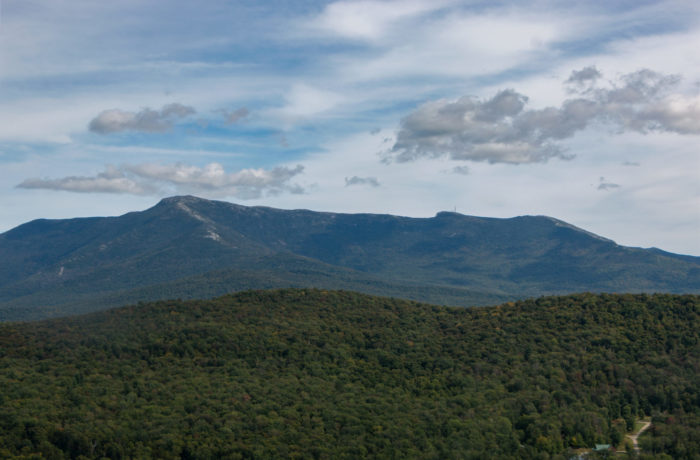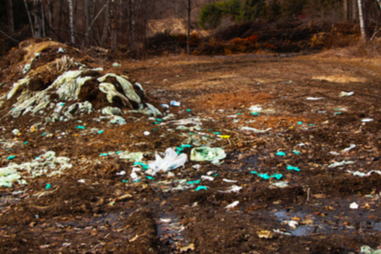By Madeline Clark
Chris Boutin, ’18, is not like most of his classmates. He is married, a father of two, and a combat veteran who served in both Afghanistan and Iraq.
Boutin grew up on a dairy farm and could not afford college.
“I didn’t see it as an option,” he said, sitting in the office of Veteran and Military Services in the Klein Hall at St. Michael’s.
When terrorists attacked the United States on Sept. 11, 2001, Boutin saw his opportunity to serve. In 2003, he graduated high school and joined the United States Marines. He was deployed for Afghanistan the following year. Boutin served a total of three tours over nine years, split between the Marines and the National Guard.
He left the National Guard because of a traumatic brain injury and posttraumatic stress disorder (PTSD). These conditions were caused by the events he witnessed manning the machine gun of a Humvee as well as on foot patrol.
Yet, his medical conditions were the reasons he chose to attend St. Michael’s College, study psychology, and spend a summer researching the effects of gardening on veterans.
The VPAA funded Boutin’s research of Horticultural Therapy as supplemental therapy for veterans and the use of those findings to develop a program structure for the Initiative.
The Initiative — a collaboration between the U.S. Department of Veterans Affairs (VA), the college’s Garden Program and Military Community Services, the Vermont Community Garden Network, and Helping and Nurturing Diverse Seniors (HANDS) in the Dirt Program — allowed him to pursue a hobby while working with other veterans.
“They [the Marines and National Guard] didn’t teach a lot of ways to deal with stress,” he said.
In Iraq, Boutin and his comrades smoked cigarettes and played cards to get their minds off the pressures of battle.
Boutin noted veterans’ apprehension upon reentry. In particular, he noticed a negative attitude towards the VA.
“A lot of people complain about it, which can scare others off,” he said. Boutin said he hoped to change this perception through his work.
“I plan on changing the perception of the VA by showing that the VA although, a large government agency, is unique per location. Here in Vermont, the VA is very supportive of its community partners. It takes veterans taking charge of their own recovery, and the recovery of others, to make a difference. I hope to create more positive stories and partnerships for the VA,” he said.
Boutin lost seven friends to suicide after the war. He himself struggled with life after service.
“I had quite a few down periods,” said Boutin. He turned to cigarettes and alcohol as a coping mechanism. However, his twin sons helped him recover.
“When I found out my wife was pregnant I quit drinking and smoking cold turkey,” he said. He turned to horticulture as a healthier healing method.
“It keeps me out of my own head,” Boutin remarked.
“Gardening is mindful and goal oriented,” said Melissa Tomasulo, associate professor of psychology. You can’t be on your cell phone while you’re doing it. You’re focused on the goal of planting or weeding.”
This is why gardening can be a very powerful form of therapy for veterans. Tomasulo added that working in a garden for 30 minutes a day could lower cortisol, a stress hormone. She noted that certain microbes in soil have “Prozac-like effects” and that by digging in the garden and breathing them in, gardeners can get “a boost in mood, which could slightly decrease depression.”
“[Veterans with PTSD] need treatment above and beyond what someone who does not have PTSD [requires], said Tomasulo.
She believes the Initiative can be helpful to veterans’ healing process. “We want to be around people that are like us. Veterans want to be around other veterans with whom they can converse or simply be together,” said Tomasulo. The Initiative allows them to do just that.
“He loves being down here,” said Professor Kristyn Achilich, Boutin’s academic advisor. “His research was the perfect outlet for him to be the responsive, active person he is, but also flex his academic muscles in psychology.”
Achilich noted that a lot of the work the army does is destructive, and that gardening allows veterans like Boutin to build something. She pointed to the service element of the Initiative, which donates food to senior citizens in the local area.
“You get to physically support your community. You fought for them overseas, but now you’re growing [food] for them,” said Achilich.
Boutin echoed the statement, claiming that he gets the most out of gardening from helping people live a more positive life.
“Gardening is a way for me to continue to serve.”


